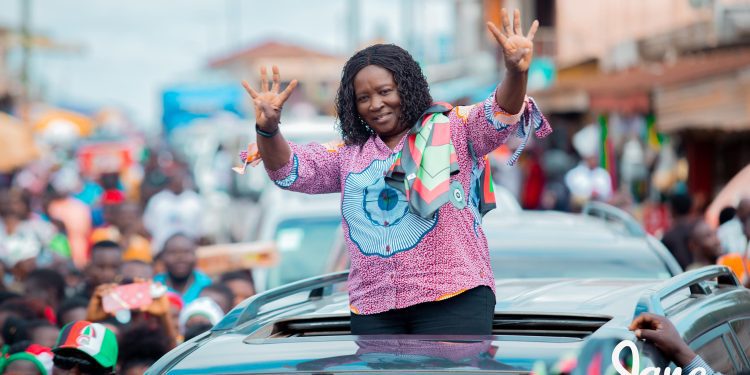The 2024 General elections will forever be remembered as a moment in history as Professor Jane Naana Opoku-Agyemang broke barriers and became Ghana’s first female Vice President-Elect.
Ghanaians headed to the polls on Saturday, 7 December, to elect the next president and parliamentarians for a four-year term. While the Electoral Commission is yet to officially declare the results, Vice President Dr Mahamudu Bawumia, the New Patriotic Party (NPP) presidential candidate, has conceded defeat and extended his congratulations to the National Democratic Congress (NDC) candidate, John Mahama and his running mate
Her victory is a milestone, not just for her but for women across the nation, marking a new era in Ghana’s political landscape.
Born on November 22, 1951, in Cape Coast, Professor Opoku-Agyemang has always been a trailblazer. Professor Jane Naana Opoku-Agyemang’s illustrious academic journey began at Wesley Girls’ High School and continued with a B.Ed in English and French from the University of Cape Coast, followed by a Master’s and Doctorate from York University, Canada. She rose to prominence as the first female Vice-Chancellor of a state university in Ghana in 2008 and held key positions at the University of Cape Coast, including Head of the English Department and Dean of the Faculty of Arts.
Internationally, she represented Ghana on UNESCO’s Executive Board and was a featured speaker at the UN to mark the 200th Anniversary of the Abolition of Slavery. Entering politics in 2013, she served as Minister for Education, introducing key reforms, and gained further recognition as the moderator of the 2012 presidential debate.
Her election into office cements her place in history as the first woman to hold one of the highest positions in the nation, breaking barriers in a political landscape that has long been challenging for women.
In Ghana, cultural and social norms often limit women’s political ambitions by focusing on their roles within the home. Political parties and society provide minimal support, making it difficult for women to run for office or attain leadership positions. Financial challenges further hinder their participation, as many women struggle to fund political campaigns. Additionally, gender biases within political institutions make it harder for women to gain trust and recognition.
Despite these obstacles, her victory symbolizes progress. It reflects growing efforts to support women in politics, increasing their visibility and paving the way for greater female representation in leadership.
–
Story by: Cindy Selasi Humade | univers.ug.edu.gh





